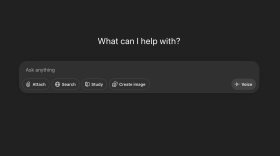Employers both large and small have concerns about whether people graduating are ready for employment. Sometimes that question involves specialized skills; but increasingly, the questions are bigger and seemingly simpler - are students prepared to join the workforce?
It’s a field known as “essential employability qualities,” or EEQs, and Alverno College will play a role in determining how to measure whether students are ready for the workplace as a participant in the The Quality Assurance Commons for Higher Postsecondary Education (the QA Commons) EEQ Pilot program.
Carole Chabries is dean of the School of Adult Learning and New Initiatives at Alverno College, one of two schools in Wisconsin and 14 around the country to help develop ways to assess students’ “essential employable qualities.”
Chabries explains that these qualities go beyond whether a graduate can type or code. "We're really talking about a set of abilities that people have when they enter the world and engage with other people. It's more about the ability to work in a space where there are other people with you thinking, leading, problem solving, disagreeing, and challenging, and how you comport yourself in an environment like that."
She says Alverno College follows an education model that is fundamentally about a student's personal understanding of themselves. "They may not be fully formed at 21 or 25 when they graduate, but they are practiced at growing and practiced at identifying the ways they need to continue their growth."
When it comes to the EEQ program, Alverno's role is to help in the development. "What [the QA Commons] wants at the end of the day is not something that works at Alverno, or works somewhere else, but that works across a system so that there can be a national conversation about it," Chabries says.
"Increasingly, even at small liberal arts colleges, faculty are really focused on helping students understand how what they learn in their major is multi-faceted," she continues. "It’s partly content, and it’s partly capability."






